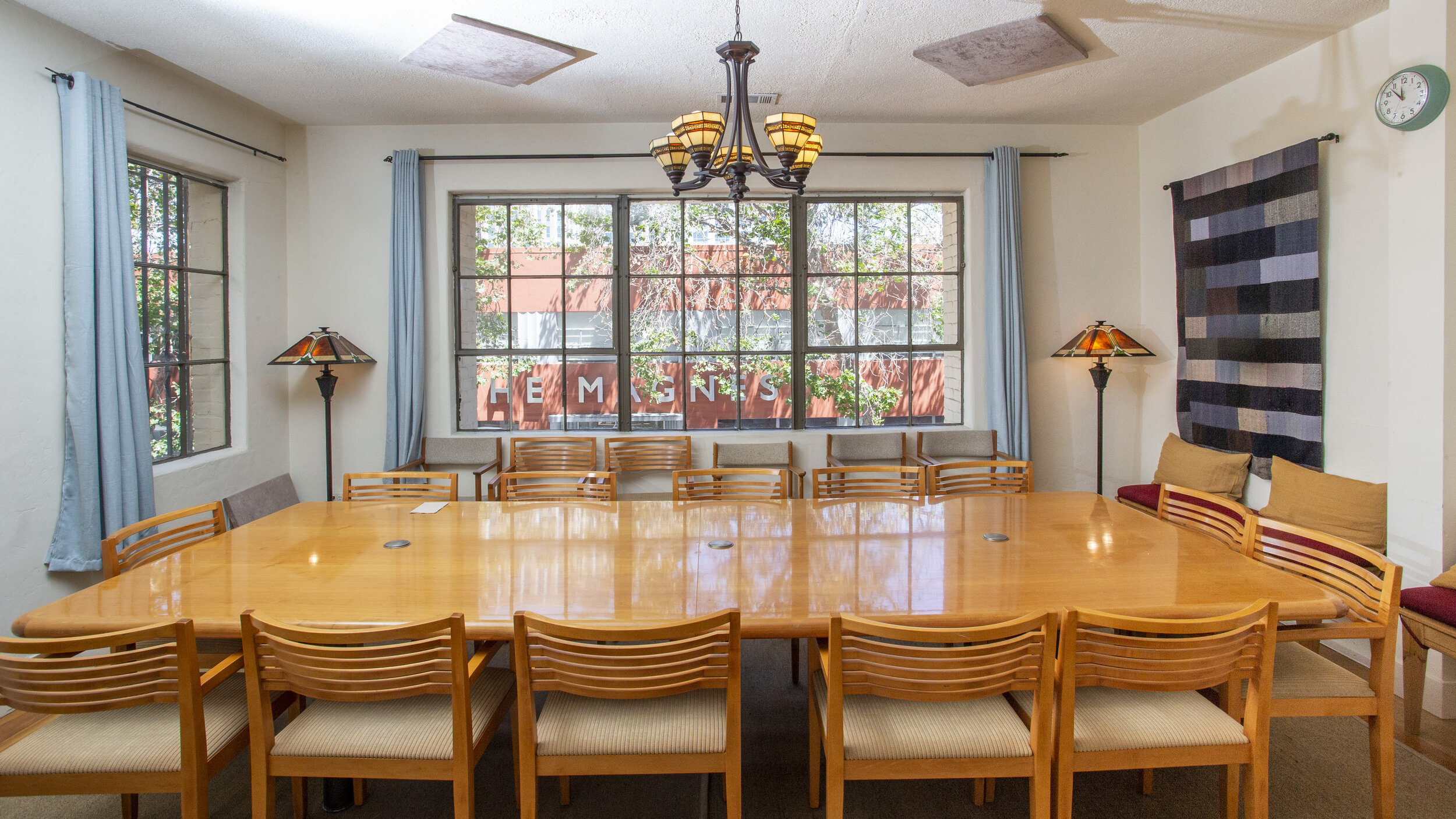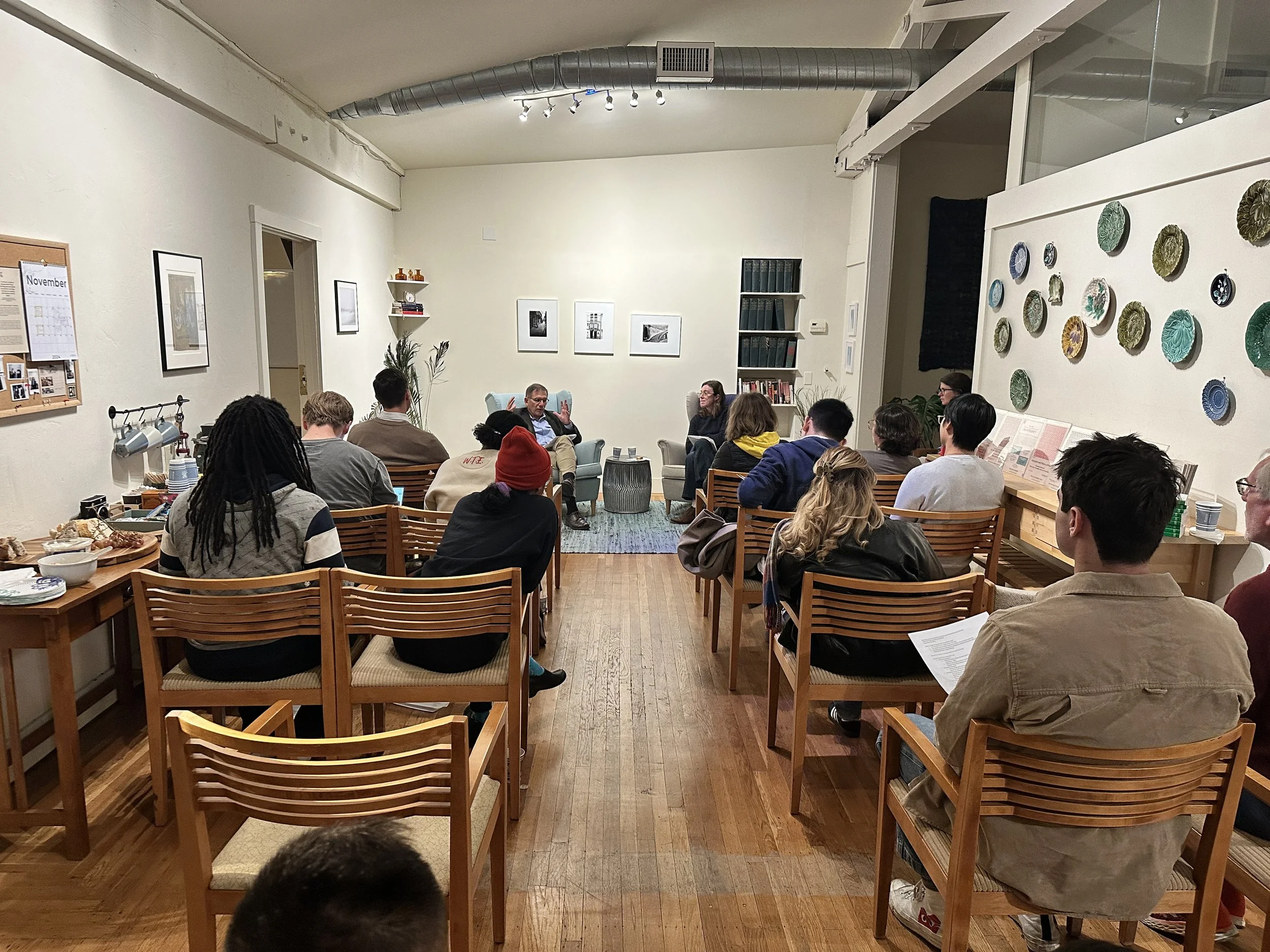
A COMMUNITY FOR THINKING ABOUT THINKING
The Berkeley Institute is a community of students and scholars committed to learning and teaching the principles and practices on which intellectual inquiry and intellectual friendship depend. We are grounded in the knowledge that religious commitments and questions (those pursuits of the soul) and intellectual inquiry (those pursuits of the intellect) are not only mutually enriching but require each other for a flourishing life. As one of our alumni once put it, "the Berkeley Institute encourages thinking deeply and living deliberately."
The Berkeley Institute's mission is to strengthen the university and the lives of its students and faculty by providing a complementary intellectual community distinct from that found on campus. Our programs and the formative community we create together enable students to value the intellectual life beyond coursework and professionalization; to take seriously both religious and intellectual commitments and the enduring question of how we should live; to explore the principles upon which good thinking depends; and to practice the virtues that make intellectual friendship across difference possible.
Our programs are shaped by our commitment to:
-
It is actually possible to think together across difference.
We value hospitality in its most quotidian sense: we provide a comfortable space, food, and books free of charge to our students. But our programming is also designed to cultivate and teach intellectual hospitality and the virtues that make intellectual friendship possible: alert and sympathetic listening, candor, forbearance and generous engagement. We believe that intellectual hospitality — giving others the space to own their personal commitments and questions — is fundamental to true intellectual friendship and the capacity to think together across differences of belief, politics and backgrounds.
-
Good work is patient — and looks to a horizon beyond self-advancement.
Our programming is designed to push past pat answers to difficult questions, to model research that expects no quick results, and to teach students the slow and patient process of intellectual inquiry.
Additionally, we know that students and scholars have prior commitments – to ideas, vocations, disciplines, communities, religions and moral codes. Thinking through these commitments — and their relationship to our academic work — is only rigorous when it is done slowly, thoughtfully, patiently, and with a willingness to rethink and revisit one’s assumptions.
-
We need a better relationship with the past.
Our logo is inspired by the eclectic tradition of stained glass, from medieval European churches to Berkeley craftsman architecture, framed in a contemporary digital graphic: without idealizing the past, our programming looks at the resources of past traditions for navigating the needs of the present. Read more about some of the specific ways we do this through our partnership with the African American Intellectual Traditions Initiative.
We are also grounded in the belief that intellectual inquiry and religious commitments can be mutually enriching — and that the university and the lives of its students are mutually strengthened when there is space to work out the relationship between one’s deepest commitments and one’s academic work. The Berkeley Institute has no official religious affiliation, but grew out of a Christian tradition of intellectual openness to the wisdom of the past anchored by the firmness of present commitment. But ours is a project relevant to anyone seeking to integrate thinking deeply and living deliberately.
-
Education is more than credentialing.
Real intellectual and inner growth cannot be captured on a transcript or CV. Our programs are free of charge and assign no grades. They are designed to encourage participants to engage in the intellectual play and open-ended curiosity of liberal education — and the possibilities therein for reflection, self-knowledge and a sharper understanding of the task of living in this world with others.
-
Public education is an invaluable social good — not least because it provides access to resources and knowledge many students might otherwise not have access to, including intellectual traditions that can be misleadingly characterized as only for elites. But the great scalable potential of the public university can sometimes make intellectual community itself more inaccessible to students. Scalable education also risks making intellectual content condensible, quickly consumable, sanitized, and uprooted from the complicated traditions that inform ideas.
Our commitment to supporting the public university is central to our work. Consequently, our programming often consists of small seminars, requires no prior expertise, and facilitates access to traditions students might find otherwise find inaccessible. Our offerings are organized around semester themes that help students find coherence and community across the disparate course offerings of a large public university.





